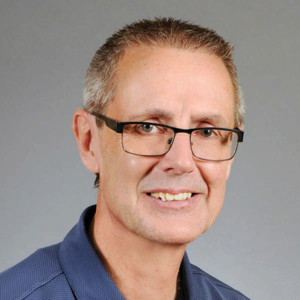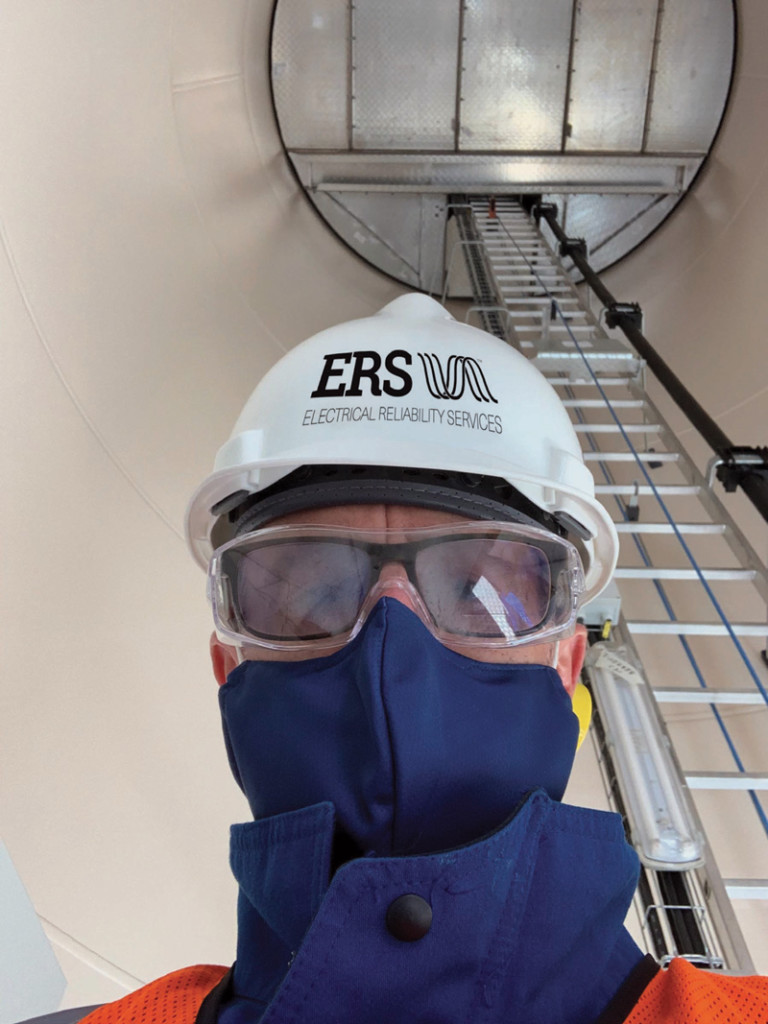More than 38 years into his career at Electrical Reliability Services (ERS), Level 4 NETA Certified Technician Leif Hoegberg stresses the importance of working safely so that everyone goes home to their families at the end of the day. Currently the Director of Engineering and Technical Support at ERS, Hoegberg has more than 40 years of electrical engineering, operations, and field service experience. He holds a degree in electrical engineering from Teknis-Rudbecksskolan in Sweden and was elected to the NETA Board of Directors in May 2022. He also serves on NETA’s Standards Review Council and is a member of IEEE, IAEI, and NFPA.
 Here, Hoegberg shares his world travels and the experiences that led him to focus on safety.
Here, Hoegberg shares his world travels and the experiences that led him to focus on safety.
NW: Please share your journey to the position you currently hold. How long have you been in the field, and how did you get started?
Hoegberg: I started out working for ASEA, the company that later merged with Brown Boveri and formed ABB. I spent my first year in a test laboratory, then I was given an opportunity to do some work for the commissioning team and found that I really enjoyed working in the field. It also gave me the opportunity to travel, which was a great incentive.
After a number of years and assignments in the Middle East, Africa, and South America, I was sent to a high-voltage direct-current (HVDC) project where power was to be brought to the Los Angeles metroplex from a generating plant in Utah via a 500 kV DC transmission line. While I was on that project, my wife, Mary Ann, gave birth to our second daughter, and we felt it would be wise to get off the around-the-world carousel for a couple of years.
I was fortunate enough to find a job at Electro-Test, Inc. (ETI), and I liked the company and the people I worked with so much that it’s now been 38-plus years! I have had the opportunity to contribute in various ways, and I have met and worked with a lot of really good people.
NW: Who has influenced you along the way?
Hoegberg: My father’s dedication to family and work inspired me, and I’ve also worked with some great people over the years. I think of Jean-Pierre Wolff, who hired me at ETI and always was quite clear about his expectations, and Art Pamplona, who taught me so much about how a service organization should function. Wally Vahlstrom was an engineer with a wealth of knowledge and a very good guy, and if I know anything about sales, I learned it from Steve Metzger. John Moore and John White — for NETA folks, no explanation is necessary
NW: What attracted you to electrical testing?
Hoegberg: It seemed like a good way to learn more about the practical application of the theory I had studied while earning my electrical engineering degree.
NW: What about this work keeps you committed to the profession?
Hoegberg: Power is generated, distributed, and used in so many ways — and in so many types of environments — there is always something new to learn and experience.
NW: Describe one of your best work days…what happened?
Hoegberg: After any successful outage or emergency call-out, walking out of a facility late at night or early in the morning with the operation back on line and the customer satisfied with the service is a great feeling.
NW: Share the story of a day that didn’t go as planned. How did you respond to the situation and what did you learn?
Hoegberg: It was clearly going to be a very hot day in the desert. I drove to work early in the morning and could see that maintenance was being performed on one of the high-voltage lines leading up to the large substation where I was working.
Even by the standards of the day, it appeared unsafe to me. It looked like dozens of workers were climbing on towers and cleaning insulators without any type of fall protection. I felt very lucky to have the job I had. I was going to be in the substation control room most of the day, out of the sun and safe.

That morning, we were going to test and verify the remote operation of circuit breakers and switches in a newly installed and energized addition to the 230 kV indoor gas-insulated switchgear. The switchgear supplier had performed their testing. I had confirmed proper operation from the RTU, and the communication between the RTU and the load dispatch center in the city had also been verified. This was the last step.
The work had been planned carefully. We were going to use a script that had been reviewed and approved by all parties involved, and we had done a site walk-through to make sure the area outside, where power exited the building, was blocked off and inaccessible. The connections to the switchyard had not yet been installed, so the equipment to be tested was completely isolated from it and the transmission grid.
I handled the communication with the team at the load dispatch center, and we slowly went through the process one step at a time. The switchgear provider’s personnel verified that the equipment was ready, I asked the operator via telephone to close and open devices per the script, and then proper operation and remote indication was recorded on our check-off sheet.
We were halfway into the day and things were going well, but when I asked the operator to close the next breaker on my list, a loud explosion rocked the large building. My first thought was, “What did I do? Did I give the wrong command? Did I tell them to close the wrong breaker? Did we just close into that overhead line all those people were working on? Others were rushing downstairs to the switchgear and outside the building to figure out what had happened, but I just stood there thinking that I had made an irreparable mistake.
As it turned out, one of the wall bushings in the circuit under test had failed, but everyone was safe — no one was hurt. The relief I felt was incredible. Given just a little bit of time to think the situation through, I realized that there was no way my first thought and fear could be right. We could not have switched into the de-energized line with all the workers on it. All the necessary precautions had been taken to ensure something like that could not and would not happen, but for those first few seconds, I thought that a catastrophic mistake had been made, and that I was responsible for it.
I was young and relatively inexperienced at the time, and the events that day made a huge impression on me. In this business, our friends and colleagues are to some degree at risk every day. Planning the workday, doing a job hazard analysis, holding a tailgate safety meeting, and discussing any potential hazards with all involved is so important. We want everyone to go home at the end of the workday. We do not want to end up in a situation where something goes wrong, especially something that could have been prevented through better planning or execution.
NW: What are some of the energy trends you believe will affect your work in the future? How are you preparing for future changes that may be coming your way?
Hoegberg: I believe we are likely to see more automation and online monitoring, as well as more renewable energy systems and development in energy storage technology, and — dare I say this? — perhaps even a slight revival of nuclear power in an updated, safer form.
As service providers, it is essential that we stay up on technology developments and adapt to the demands of the market.
NW: As an industry, what do you think should be the No. 1 priority over the next year?
Hoegberg: Training and education. Technology is constantly changing, and equipment and systems are becoming more complex. More structured and higher-quality training and education will be required for us to be able to support our customers’ changing needs.
NW: If you were talking to a young person interested in knowing more about a career in electrical testing, what advice would you give?
Hoegberg: Make sure it’s what you really want to do. It can be very rewarding but also quite demanding of you and your family. Be prepared to travel. You will see new and different equipment or applications on a regular basis, which is great, but you will spend time on the road. Study for the NETA exams; stay up on new technology. Become a mentor and share your technical knowledge and experience with your colleagues.
WANT TO TELL YOUR STORY?
NETA World is looking for technicians, emerging leaders, and industry thought leaders to be featured in our Insight & Inspiration department. If you know someone who would make a great interview — or if you would like to be interviewed yourself — please contact Carla Kalogeridis at ckalogeridis@netaworld.org.